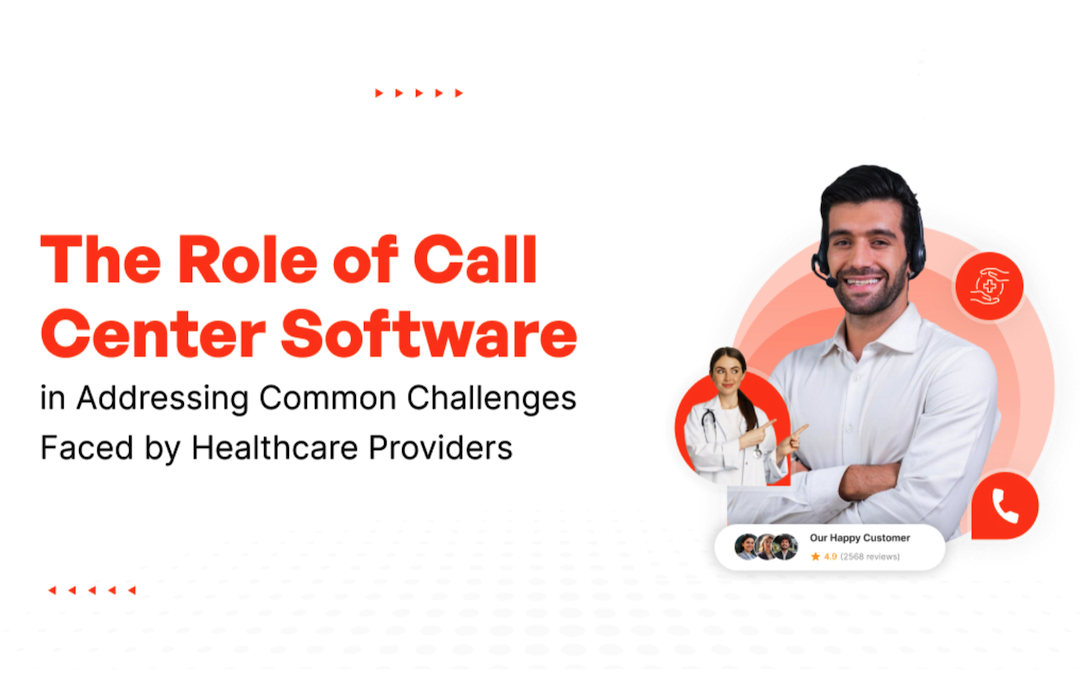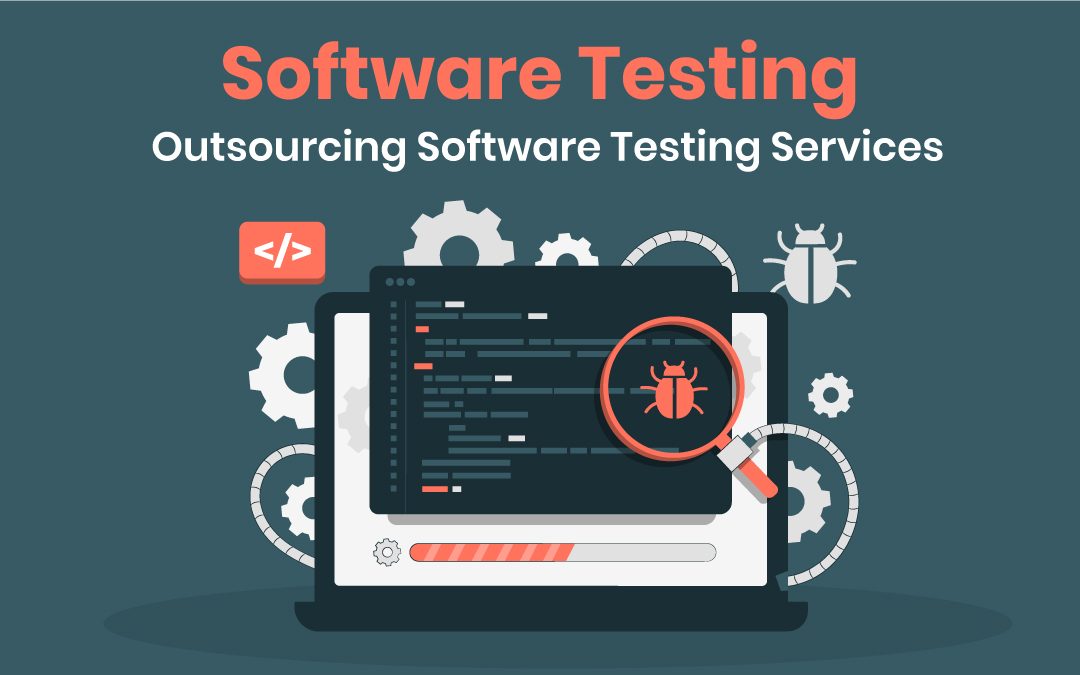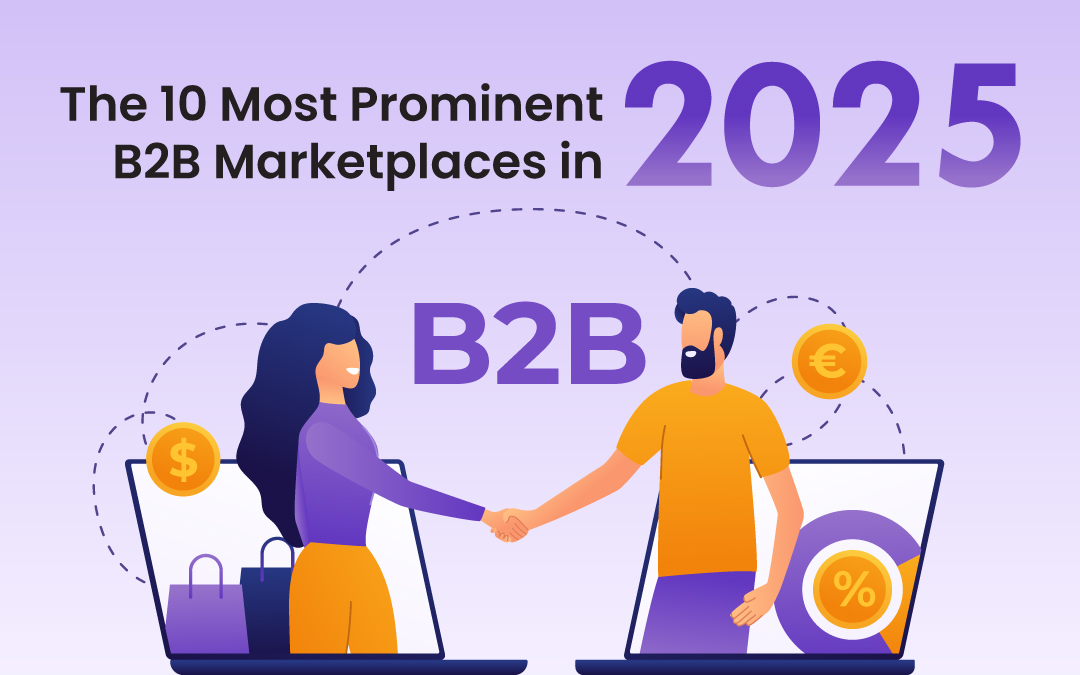
“In healthcare, the patient's experience is the new marketing.” This famous quote by – David Feinberg (former CEO of Geisinger Health), reflects the growing trend where patient experience matters the most. A positive patient experience gives a competitive advantage to healthcare providers as it leads to increased customer loyalty and helps boost reputation in today’s competitive marketplace.
When talking about patient experience in the healthcare industry, call centers play an important role in ensuring timely assistance, seamless communication, and personalized care. With the help of the right call center software, healthcare call centers enhance patient experience and overall outcomes. In this blog, you will get a better understanding of the role that call center software plays in the healthcare industry in addressing their common challenges.
Common Challenges Faced by Healthcare Providers
Here are some of the most common challenges that healthcare providers face in their day-to-day operations.
High Call Volumes
One of the most common challenges in healthcare call centers is the high call volume. As patients need to get quick answers to their queries, schedule appointments, or inquire about their medical records, call centers can become overwhelmed. This further leads to increased wait times, higher call abandonment rates, and dissatisfied patients.
Insufficient Resources
Limited resources are another key challenge faced by healthcare call centers. In the absence of sufficient resources, it may become difficult for healthcare providers to deliver personalized assistance to each patient. Moreover, long wait times may create frustration among callers as well as available resources.
Agent Burnout
It is important to note that call center and contact center agent stress is an industry-wide issue. As per a report, about 59% of contact center agents are at risk of burnout. High call volumes and limited resources can put a lot of workload pressure on call center agents, which may lead to agent burnout. The increased pressure and requirement to deliver the best service can affect their overall performance and efficiency.
Data Security Concerns
Since the healthcare sector deals with managing sensitive patient data, it becomes very important to ensure the utmost security of data. Call centers in the healthcare industry may find it challenging to manage and protect a huge amount of patient data from unauthorized access.
Integration with New Systems and Technologies
To perform well in today’s competitive marketplace, it is important to adapt to the latest technologies and systems. Especially, in the healthcare sector, implementing the latest technology trends is essential to ensure the smooth running of entire operations. However, integrating the new technologies and systems can be challenging as it may lead to disruptions in service and potential communication breakdowns.
How Call Center Software Helps in Addressing the Challenges of Healthcare Providers?
To enhance patient satisfaction levels and healthcare operations, the service providers in this sector need a robust system. Here, call/contact center software plays a vital role in addressing the common challenges faced by healthcare providers. It comprises advanced features and technologies that help service providers in augmenting their overall communication process, patient satisfaction, and overall outcomes.
Efficient Call Routing and Self-Service Options
To help healthcare providers manage high call volumes, most call and contact center systems come equipped with efficient call routing and self-service options. With features like Automatic Call Distribution (ACD) and skill-based routing, inbound calls can be routed to the right agent or department quickly.
Moreover, features like Interactive Voice Response (IVR) and Chatbot allow callers to access self-service options to get quick responses to their common inquiries, schedule appointments, refill prescriptions, access reports, get emergency service, or connect with a particular agent or department, reducing the wait times and increasing overall satisfaction.
Automation and Omnichannel Support
Call center software allows healthcare providers to optimize their resources efficiently through automation. With automated appointment scheduling, follow-up, callbacks, and reminders, healthcare call center agents can utilize a lot of time to focus on other important tasks. This not only helps callers get quick responses to their queries but also enhances the agent’s efficiency.
Besides, the omnichannel support that contact center systems provide, allows agents to provide customer support through multiple communication channels like voice, email, chat, and social media. Customers can connect with the agents via their choice of communication channels or switch between channels without repeating their queries again and again. This enhances satisfaction levels among callers and increases first-call resolution (FCR) rates.
Workforce Management Tools
According to a report, customer service representatives stay in their jobs for just over a year on average, especially those aged 20 to 34. Call center turnover rates are between 30-45%, double the average in other departments, largely due to the high stress, monotony, and limited career growth associated with the role.
Workforce management tools offered by call center software help optimize agent schedules and ensure balanced workloads. By automating tasks like appointment scheduling, taking follow-ups, forecasting, and real-time monitoring of agents, these tools ensure that the right number of staff is available at all times, thereby reducing the workload and anxiety among the agents. Workforce management tools work by predicting peak call times by analyzing historical data and accordingly adjusting staffing levels, reducing downtime and overstaffing. When there is a right balance in workload distribution, agents will feel stress-free, leading to minimized agent burnout and improved overall productivity.
Integration with New Systems
In order to improve patient experience and operational productivity, healthcare organizations must adopt innovative technologies. With the help of advanced contact center software, such as call center software, healthcare providers can seamlessly integrate their existing systems like CRM, telemedicine platforms, Electronic Health Records (EHRs), appointment scheduling platforms, patient management systems, and billing software. This integration allows service providers to access the necessary information in real time, enabling them to manage inquiries and appointments more effectively without the need to switch between multiple systems.
The unified flow of information across departments ensures that both the healthcare professionals and customer service representatives have the same access to critical data, which improves patient experience and reduces errors. In all, the integration of call/contact center software with the existing healthcare systems helps streamline workflows, automate routine tasks, and build a more coordinated communication process.
Data Security and Compliance
Just like any other customer-centric industry, data security and compliance are of utmost importance in the healthcare industry. Managing sensitive patient information requires strict adherence to data privacy regulations, such as HIPAA (Health Insurance Portability and Accountability Act) in the U.S., GDPR (General Data Protection Regulation) in Europe, and other healthcare-related laws and regulations. Call center software ensures secure storage of personal health information and strict access controls by implementing strong encryption protocols for both voice and digital communications.
With the help of call and contact center software, healthcare providers are not only able to maintain regulatory compliance but also nurture trust between patients and the organization, knowing that their sensitive data is handled securely. Additionally, full transparency and accountability can be maintained using call center software as it often includes auditing and tracking tools that help users monitor who accesses patient data and how it is used. If any security breaches or non-compliant activities are found, quick actions can be taken to prevent or resolve the issue.
Conclusion
Call and contact center software for the healthcare industry is undoubtedly the best tool that helps streamline operational workflows, maintain and secure sensitive patient data, reduce agent burnout, and most importantly enhance the overall patient experience. It would be correct to say that call center software is a win-win for both healthcare providers and their customers as it takes both organizational goals and patient’s needs and expectations into account.
If you are from the healthcare sector and looking to enhance your organization’s productivity and patient experience, you must invest in the right call/contact center software. Just make sure to analyze your key requirements and goals and accordingly choose the right software that offers all the necessary features and functionalities.
Share this post
Leave a comment
All comments are moderated. Spammy and bot submitted comments are deleted. Please submit the comments that are helpful to others, and we'll approve your comments. A comment that includes outbound link will only be approved if the content is relevant to the topic, and has some value to our readers.



Comments (0)
No comment